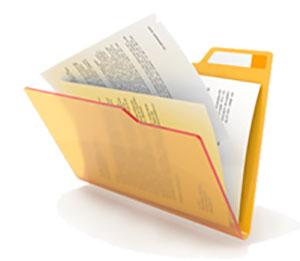Requirements to be a Travel Nurse: The "Musts"

In order to become a travel nurse in the United States, you must be eligible to work in the US, you must have a nursing degree from an accredited institution and, it goes without saying, you must have passed the NCLEX exam.
1. Valid Nursing License
Regardless of where you are currently licensed to practice nursing, you're probably not surprised that you will also need a valid RN license in any other state in which you wish to practice.
Over half of the states in the US belong to an organization called the extended Nurse Licensure Compact (eNLC). These states have an agreement that RNs who are licensed to practice in one of the member states are also eligible to practice in the other "Compact States." A relatively simple documentation process is all that is required to obtain an eNLC license, and a world of travel opportunities will open up to you. If you wish to practice in a location that is not part of the eNLC or your 'home state' license is not in the eNLC, you will have to apply for your additional license by Endorsement. A good travel nursing agency will guide you through the process and reimburse you for licensure that is necessary in order for you to take an assignment with them.
Note, while there are hospitals who employ traveling LVNs and LPNs, the great majority are looking to hire traveling RNs. Some hospitals prefer nurses who have a BSN, though there are many employers who do not require travelers to have a BSN.
2. Experience in an Acute Care Setting
Virtually all hospital employers require travelers to have at least one year of experience in a acute care setting. For some specialties like NICU, PICU or Obstetrics, employers may require travelers to have additional years practicing in that area. New grads who are anxious to get started traveling should focus on a career path that will get them a year of hospital experience as soon as possible. Many travelers start out as Med/Surg nurses, but there are as many paths to travel nursing as there are nurses.
3. Certifications
All travel nursing positions will require a current Basic Life Support (BLS). Advanced Cardiac Life Support (ACLS) and Pediatric Advanced Life Support (PALS) certification is necessary for specialties that commonly treat cardiac and pediatric patients respectively. Additional specialty certifications are often requested, depending upon the hiring hospital and the position in question.
Your recruiter will let you know what certifications are necessary for each assigment they suggest to you. You will have an advantage in being hired if you already have common certifications in your specialty, such as CCRN for traveling Critical Care nurses or CEN for Emergency Room travel nursing jobs.
4. Up-to-Date CEUs
Some states require a certain number of Continuing Education Units (CEUs) in order to maintain a valid license. If you are working with a Compact License, you will need to meet the CEU requirements of your home state. There are a few states that also require travelers to have coursework in specific areas before starting a travel assignment. Your Recruiter can tell you what is required for the state in which you wish to practice. If you have an additional license in a non-compact state, you will need to meet that state's continuing education requirements in order to keep the license valid. Fortunately, most states have made an effort to make continuing education an easy process, allowing RNs to fulfill requirements with online courses from a variety of providers. Check with your travel nursing agency and make sure that they offer continuing education credits, and take advantage of the offering!
You have probably heard that your travel nursing assignments must be at least 50 miles from your 'tax home.' (Essentially a tax home is a primary residence where you pay a continuous market rate for mortgage or rent. That said, 'tax home' is a complicated issue that you should discuss with a tax professional because there are a lot of possible interpretations. Your recruiter can point you toward helpful resources on this topic, but they are not experts on taxes or on your particular financial situation. ) At the end of the day, you can still travel regardless of your tax home status, but any stipends, allowances or reimbursements you take will be treated differently for tax purposes.
Keep Calm and Carry On
As you get closer to taking your first travel nursing assignment, you'll start gathering all the necessary certifications, documentation, immunization documents and test results. As you prepare for your first assignment, it may seem like a tsunami of paperwork is washing over you. But have no fear! Your recruiters - and their team - will be with you every step of the way, making sure everything is in place and you are good to go. After the second and third assignment, it will just seem easier and easier, and you'll be ready to tell all new travelers you meet to just "Keep Calm and Carry On."
